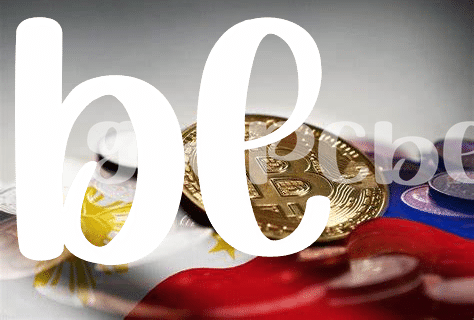Current Status 🚦

The adoption of cryptocurrencies in the Philippines has been steadily gaining momentum, with a growing number of individuals and businesses embracing this digital financial frontier. As digital assets continue to make waves globally, the Philippines is positioning itself to be at the forefront of this revolutionary shift. The current status reflects a landscape ripe with potential and opportunities, attracting both seasoned investors and newcomers seeking to explore the possibilities that cryptocurrencies offer in the realm of finance and technology.
Regulatory Framework 📚
In the realm of cryptocurrencies in the Philippines, the regulatory framework stands as a cornerstone shaping the landscape. As authorities strive to strike a delicate balance between fostering innovation and safeguarding against risks, a structured framework emerges. This framework encompasses guidelines on registration, compliance, and oversight, instilling a sense of legitimacy and stability within the ecosystem. The regulatory framework not only sets the rules of engagement for market participants but also signals the government’s commitment to nurturing a conducive environment for cryptocurrency adoption and growth.
As the regulatory landscape continues to evolve, staying abreast of key developments and compliance requirements is crucial for businesses and investors operating in the cryptocurrency space. Engaging with regulatory bodies, understanding policy changes, and actively participating in shaping the framework can pave the way for a sustainable and progressive environment where cryptocurrencies can thrive. Through a collaborative approach between regulators, industry players, and stakeholders, the regulatory framework can be refined to address emerging challenges and support the long-term growth of the cryptocurrency sector.
Key Players 🤝

The cryptocurrency ecosystem in the Philippines thrives with a diverse range of key players contributing to its growth and development. From established financial institutions to innovative startups, each entity plays a crucial role in shaping the landscape of digital currency in the country. Regulatory bodies such as the Bangko Sentral ng Pilipinas (BSP) and the Securities and Exchange Commission (SEC) work hand in hand with industry stakeholders to ensure compliance and foster a secure environment for all participants. Moreover, local exchanges, blockchain developers, and advocacy groups actively engage in promoting awareness and adoption of cryptocurrencies among the Filipino population. Collaboration among these key players is essential in building a sustainable and vibrant crypto economy that benefits both businesses and consumers alike. Through ongoing dialogues and partnerships, the Philippines continues to position itself as a forward-thinking nation in embracing the potential of blockchain technology and digital assets.
Challenges Ahead ⛰️

The cryptocurrency landscape in the Philippines is brimming with potential, but it is not without its fair share of challenges. Issues such as regulatory uncertainties, security concerns, and technological complexities pose obstacles to the widespread adoption of cryptocurrencies in the country. Moreover, the lack of clear guidelines and the risk of potential fraud and scams continue to be pressing concerns for both investors and regulators alike. However, amidst these challenges lie opportunities for growth and development, as stakeholders work towards creating a more secure and transparent environment for crypto transactions.
For further insights on government stances on cryptocurrency regulation, you can also explore the unfolding dynamics in Papua New Guinea on government stance on the future of cryptocurrencies in Papua New Guinea. As the industry navigates through these challenges, proactive efforts from regulatory bodies and market participants will be crucial in shaping the future of cryptocurrencies in the Philippines.
Innovation and Opportunities 💡
Cryptocurrencies have paved the way for numerous innovative applications in the financial sector, offering opportunities for streamlining transactions and reducing fees. With blockchain technology at its core, this digital asset class has the potential to revolutionize traditional banking systems, enabling secure and efficient cross-border transfers. The emergence of decentralized finance (DeFi) platforms harnesses the power of cryptocurrencies to provide inclusive financial services to populations with limited access to traditional banking. Additionally, crypto-based crowdfunding and tokenization of assets are opening up new avenues for investment and fundraising, democratizing access to capital markets.
The evolving landscape of cryptocurrencies in the Philippines presents a fertile ground for entrepreneurial ventures and technological advancements. By embracing these digital assets within a robust regulatory framework, the country can harness the potential of blockchain technology to drive economic growth and financial inclusion. As innovation continues to flourish in this space, collaborations between industry players and regulatory authorities will be key in unlocking the full spectrum of opportunities that cryptocurrencies offer for the future of finance.
Future Outlook 🔮

As the landscape of cryptocurrencies continues to evolve, the future outlook is filled with both promise and uncertainty. The ongoing technological advancements in blockchain and digital currencies are expected to pave the way for new innovations and applications. However, regulatory clarity remains a critical factor that will shape the trajectory of the industry. The concerted efforts of regulatory bodies, industry stakeholders, and policymakers will play a pivotal role in defining the future of cryptocurrencies in the Philippines. Embracing technological advancements while addressing potential risks will be key in ensuring a sustainable and thriving cryptocurrency ecosystem.
In a global context, government stances on the future of cryptocurrencies vary significantly. While some countries have taken proactive measures to regulate and integrate cryptocurrencies into their financial systems, others have adopted a more cautious approach. To explore further government perspectives on cryptocurrencies, one can refer to the stance of the **[government of Palau](#)** and compare it with the approach of the **[government of Nicaragua](#)**. Understanding these diverse approaches can provide valuable insights into the future direction of cryptocurrencies on a global scale.
